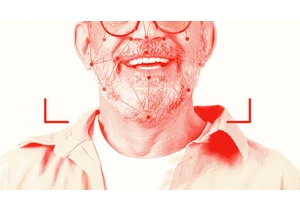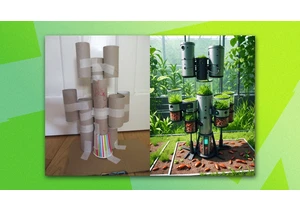Airbnb is, by nearly every measure, a Silicon Valley success story.
The company was founded during the Great Recession, shot up through the prestigious Y Combinator program, made its market debut during the pandemic, and is now worth more than $70 billion. But things might have looked different if it weren’t for a bad dream in late 2019 that caused CEO and cofounder Brian Chesky to reconsider how he runs the company.
“I always thought it was made up when people actually have these dreams,” Chesky said during a conversation on stage at the Fast Company Innovation Festival with FNDR CEO James Vincent. “I had this terrible dream that I left the company. I came back and I was horrified of what I found. And then I realized that it was exactly what we’re doing right now.”

“It turns out the one time you should not rebuild a company from the ground up is right before you submit your S-1. And I was stuck and the growth was slowing. Expenses were rising. And all of a sudden I realized as a designer running this company: How did I end up in this position where it just seemed a little bit conventional and like every other company?” Chesky said.
It’s not that Chesky thought the company would be doomed, he stressed. But he wanted to settle that uneasy feeling and get back to his roots of being a designer. (Chesky studied industrial design at the Rhode Island School of Design.) The company was operating with nearly a dozen divisions that created their own subdivisions which, in turn led to a central message being left out and, essentially, a lack in strategy.

Airbnb began to cut down some of its divisions to streamline the organizational structure. It dramatically decreased marketing spend and saw little impact. “We realized our brand is stronger and more differentiated and we’re going to to lean into our differentiation,” Chesky said. “We’re going to do fewer things, we’re going to be totally functional. We’re going to be a creatively driven company.”
“It’s not that creativity should drive everything,” he said. “It should be in the room. It should be in the conversation. And if you ever have those bad trade offs where there’s no good solution, that’s when creativity’s really helpful. Because when you have two bad options, creativity sometimes allows you to design a win-win, a third path.”
“And I think that there’s a creative renaissance that could happen because when you look at the next generation, they are really different,” Chesky continued. “They have this creative spirit and I think creativity is very correlated with [the] humanistic. I think that people want to buy things from companies or work for companies that are deeply humanistic.”
Melden Sie sich an, um einen Kommentar hinzuzufügen
Andere Beiträge in dieser Gruppe

As you scroll through your FYP, a sweet elderly man or woman appears, asking for a moment of your attention to help save their struggling animal shelter.
“Please stay 8 seconds so I don’


Stephen Miller, the hard-line Trump adviser who helped craft some of the administration’s most aggressive immigration enforcement policies, is apparently profiting from the tools that make them po

Robotaxis are crashing into the rideshare market.
Drivers for apps like Uber and Lyft are growing worried about autonomous vehicles. Waymo has already deployed their vehicles acros


Danish artist Andreas Refsgaard has been combining generative AI with handcrafted prototypes to create unique glimpses of what’s ahead—a future that could one day make artists like him obsolete.

Is it time to BeReal again?
In 2022, the photo-sharing app surged in popularity, won Apple’s “App of the Year,” and even earned its own SNL skit. Once a day, at a random time, users were
